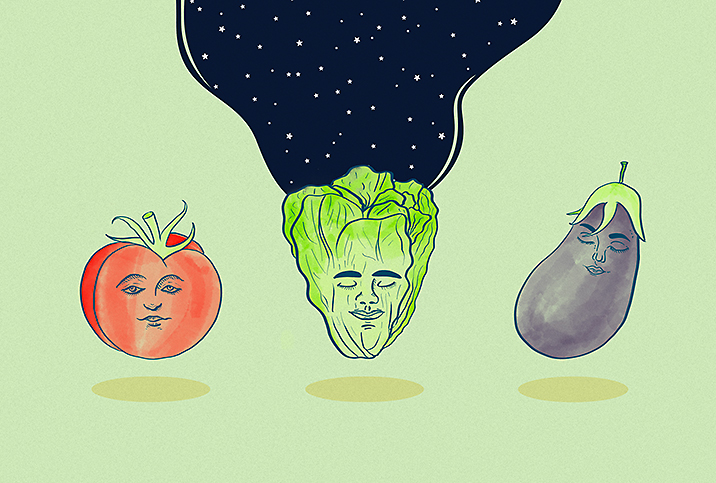Plant-Based Diets Linked to Lower Risk of Colorectal Cancer in Men

A plant-based diet—one that focuses primarily on foods derived from plants—has been linked with numerous health benefits, including reduced risk of stroke, cardiovascular disease and overall mortality.
Now, new research published in BMC Medicine adds to the list of potential perks. The large study found following a diet rich in fruits, vegetables, whole grains, nuts and legumes may be able to lower the risk of colorectal cancer in men by more than a fifth.
The research involved 79,952 male and 93,475 female participants between the ages of 45 and 75 from Hawaii or the Los Angeles area. Participants were asked about the frequency and amounts of their food and drink consumption among a list of more than 180 items.
Foods and drink options fell into three categories:
- Healthy plant-based foods (whole grains, fruits, vegetables, vegetable oils, nuts, legumes, tea and coffee)
- Less-healthy plant-based foods (refined grains, fruit juices, potatoes and added sugars)
- Animal foods (meat, seafood, dairy, eggs and animal fat)
The results
Overall, male participants who ate large amounts of healthy plant-based foods experienced a 22 percent lower risk of colorectal cancer. Unhealthy plant-based foods did not appear to lower the risk. Results varied by race and ethnicity. The association with reduced risk was higher among white, Japanese American and Native Hawaiian participants than in Black and Latino subjects.
Plant-based diets appeared to have no influence on women's risk of colorectal cancer.
"We speculate that the antioxidants found in foods such as fruits, vegetables and whole grains could contribute to lowering colorectal cancer risk by suppressing chronic inflammation, which can lead to cancer," study author Jihye Kim, a medical nutrition professor at Kyung Hee University in South Korea, told Medical News Today. "As men tend to have a higher risk of colorectal cancer than women, we propose that this could help explain why eating greater amounts of healthy plant-based foods was associated with reduced colorectal cancer risk in men but not women."
About colorectal cancer
Colorectal cancer is an umbrella term that includes colon cancer, which starts in the colon (large intestine), and rectal cancer, which starts in the rectum. Depending on its origin, colorectal cancer might be called colon cancer or rectal cancer.
"Colorectal cancer is the second-most common cancer that men and women die from," said Andrew S. Boxer, M.D., a gastroenterologist at Gastroenterology Associates of New Jersey who was not involved in the study. "It's one of the few preventable cancers, so that's one of the reasons we focus on it so much."
According to Boxer, you can be genetically predisposed to colorectal cancer or have an inflammatory bowel disease that increases your risk of developing it. However, there are what he called modifiable risk factors, including smoking, alcohol consumption, a sedentary lifestyle and a poor diet.
Specifically, diets high in red meat and processed foods are associated with increased risk.
"There's no question about it," Boxer said. "There's been a lot of good research as recent as the last three months that shows highly processed foods will significantly increase your risk."
In addition to steering away from burgers and french fries in favor of vegetables, fruits and whole grains, Boxer advised regular cardiovascular exercise and seven to eight hours of sleep every night to reduce your chances of developing colorectal cancer.
"Keeping a healthy gut microbiome is important," Boxer added. "We don't know exactly what that means—it's not like there's some magic probiotic out there—but what it probably means is eating a regular kind of healthier diet, not smoking, not vaping, not eating a lot of processed food and not taking unnecessary antibiotics."


















